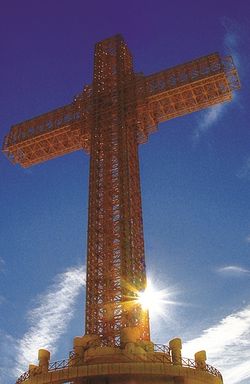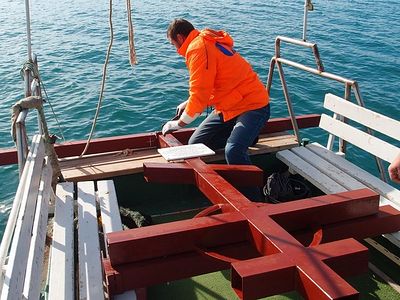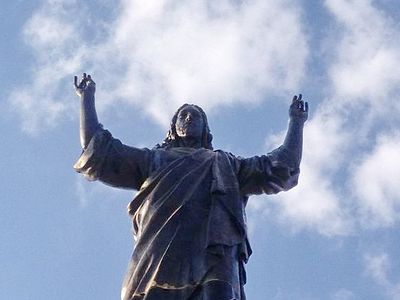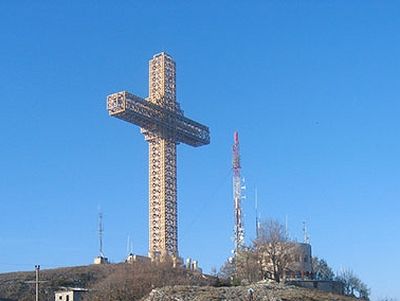Skopje, November 11, 2013
 Millennium Cross
Millennium Cross
The plan to build the tall cross in the Aerodrom municipality of the Macedonian capital which, according to the project’s initiator, will be visible in the Albanian, predominantly Muslim parts of Skopje, was criticised by locals.
“There are enough churches and mosques. There is no need for such monuments,” Adem Ahmet, an elderly ethnic Albanian resident of Skopje’s Albanian-dominated Cair municipality told BIRN.
“This is provocation. We already have one [66-metre-high] cross [in Skopje] which can be seen from everywhere,” another local Albanian resident told BIRN.
The other huge cross, twice the size of the new one, was erected in 2001 on top of Vodno Mountain near the city.
Called the ‘Millennium Cross’, it was also a focus for ethnic and religious grievances in the country which went through a brief armed conflict between ethnic Albanian insurgents and the security forces the same year.
Like the Albanians, ethnic Macedonians in Aerodrom did not seem thrilled by the idea of the new cross.
“We have other priorities in the municipality, kindergartens, schools, hospitals,” one of them, Milka Kapushevska, told BIRN.
The project’s initiator, the pan-Macedonian non-profit organisation, the World Macedonian Congress, the cross in Aerodrom, a municipality dominated by Macedonians who are mainly Orthodox Christians, will also be seen in the nearby municipalities but is not intended to offend Muslims.
“The cross is neither a conspiracy nor a provocation, but a cultural affirmation. It is not an anti-Islamic symbol but an integral part of the Macedonian culture,” the World Macedonian Congress said in a statement.
The Congress, seen as a conservative organization close to the main ruling centre-right VMRO DPMNE party, describes Macedonia as “the basis of Christianity in Europe”.
The municipal council in Aerodrom last week decided to allow the construction of the cross with votes from VMRO DPMNE councillors assuring that the project was approved.
With the decision, the municipality gave the land to the Congress for the construction of “a temporary object of cultural and religious character”.
The cross, with its 33 metres symbolising Jesus’s age when he died, should be built within a year and will be financed by donations.
The decision to approve the cross comes amid speculation on social networks that a nearby Turkish investment project to build four skyscrapers could invite an influx of Muslim buyers in the ethnically and religiously homogenous municipality.
The building of the giant cross was announced just as the Turkish investors denied rumours that they planned to build a mosque there.
The municipal authorities and the World Macedonian Congress however categorically denied that the cross has anything to do with the Turkish project.
The majority of the population of the country are Macedonians who are Orthodox Christians. Most of the country’s ethnic Albanians, who make up a quarter of the population, are Muslims.
Eurasiareview.com
By Sinisa Jakov Marusic



